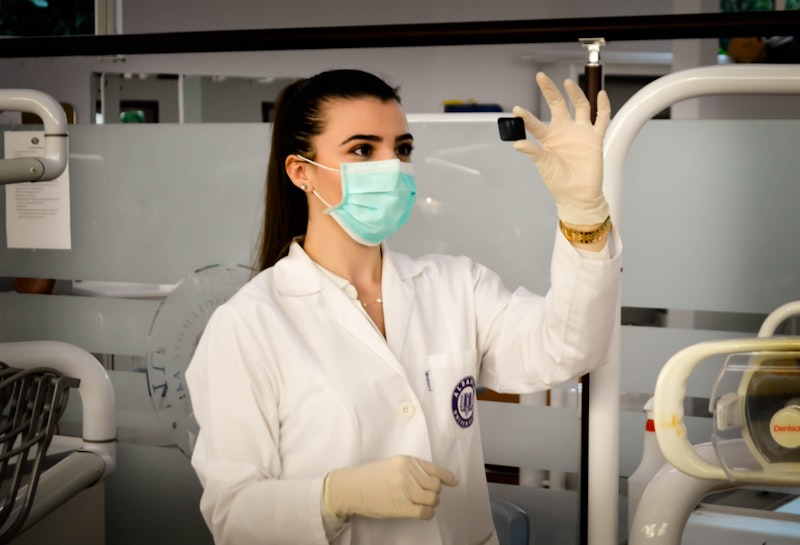When it comes to managing our health, knowledge is power. Our ability to understand and make informed decisions about our well-being is known as health literacy. It encompasses more than just reading medical terminology; it involves understanding health information, navigating healthcare systems, and making appropriate choices for ourselves and our loved ones.
So, what exactly is health literacy? In simple terms, it refers to our capacity to obtain, comprehend, and utilize health-related information. It goes beyond basic reading skills and encompasses critical thinking, communication, and decision-making abilities. A person with high health literacy can understand instructions from healthcare professionals, evaluate the credibility of health information, and confidently advocate for their own needs.
Imagine you're in a situation where you're given complex medical instructions for managing a chronic condition. If you have low health literacy, you may struggle to understand the information, leading to confusion and potential mistakes in managing your health. On the other hand, an individual with strong health literacy would be able to grasp the instructions, ask relevant questions, and follow through with the necessary actions, improving their overall health outcomes.
Health literacy plays a crucial role in promoting public health and reducing healthcare disparities. When people are equipped with the skills to interpret health information accurately, they can take proactive steps towards prevention and early intervention. This leads to better self-care, improved adherence to treatment plans, and reduced hospitalizations.
To enhance health literacy, it's crucial for healthcare providers, policymakers, and educators to simplify health information, use plain language, and employ visual aids whenever possible. Clear communication enables individuals to understand their conditions, treatments, and preventive measures effectively. Additionally, fostering a supportive environment where patients feel comfortable asking questions empowers them to actively participate in their own healthcare journey.

Health literacy is the foundation for building healthier communities. By ensuring individuals have the knowledge and skills necessary to make informed decisions about their health, we can promote better outcomes and reduce healthcare disparities. Improving health literacy is a shared responsibility that requires collaboration between healthcare providers, organizations, and individuals themselves. Let's strive to enhance health literacy and empower everyone to take control of their well-being.
Closing the Gap: Promoting Health Literacy for a Healthier Society
Are you aware that health literacy plays a significant role in our society's overall well-being? It's not just about understanding complex medical jargon; it's about empowering individuals to make informed decisions about their health. In this article, we will explore the importance of closing the gap in health literacy and how it can contribute to creating a healthier society.
Health literacy refers to an individual's ability to obtain, understand, and use health information to make appropriate health decisions. Unfortunately, there is a gap in health literacy that affects various aspects of our lives. From accessing healthcare services to managing chronic conditions, low health literacy can lead to adverse outcomes and increased healthcare costs.
The first step in closing this gap is recognizing the barriers that prevent individuals from understanding and utilizing health information effectively. Limited access to healthcare facilities, language barriers, and low educational levels are some of the common challenges faced by many. By addressing these obstacles, we can pave the way for a more health-literate society.
One effective strategy is to improve health communication. Healthcare providers and institutions should aim to communicate vital information using clear, concise language that is easily understood by the general public. This means avoiding technical terms and using simple explanations that resonate with people from diverse backgrounds. By making health information accessible to everyone, we empower individuals to actively participate in their own health management.
Another crucial aspect is promoting health education. Schools, community centers, and workplaces can play a pivotal role in enhancing health literacy. By integrating health education programs into curricula and conducting awareness campaigns, we can equip individuals with the knowledge and skills needed to make informed decisions about their health. Furthermore, teaching critical thinking and evaluating health information sources can help individuals navigate the vast sea of misinformation prevalent in today's digital age.
Building partnerships between healthcare providers, policymakers, and community organizations is also essential. Collaboration can lead to the development of comprehensive health literacy initiatives that address the unique needs of different populations. By working together, we can create supportive environments that foster health literacy and empower individuals to take control of their health.
Closing the gap in health literacy is crucial for promoting a healthier society. By addressing barriers, improving health communication, promoting education, and fostering collaboration, we can ensure that everyone has the knowledge and skills they need to make informed decisions about their health. Let us strive towards a future where health literacy is no longer a gap but a bridge that connects individuals to better health outcomes.
Unlocking the Power of Knowledge: How Health Literacy Impacts Public Health
Picture a world where every individual possesses the ability to understand and navigate the complexities of health information. In this utopian vision, people would confidently make informed decisions about their well-being, leading to improved public health outcomes. This is precisely what health literacy aims to achieve.
But what exactly is health literacy? It refers to an individual's capacity to obtain, process, and comprehend basic health information and services required to make appropriate health decisions. Essentially, it is about empowering individuals to become active participants in managing their own health.
Health literacy plays a pivotal role in public health for several reasons. Firstly, it enables individuals to make informed choices regarding preventive measures, such as vaccinations and screenings. With an understanding of these interventions, people can take proactive steps to safeguard their health and prevent the spread of diseases.
Secondly, health literacy fosters effective communication between healthcare providers and patients. When individuals possess the knowledge and skills to comprehend medical jargon, interpret test results, and understand treatment options, they can engage in meaningful conversations with their healthcare team. This facilitates shared decision-making and enhances the quality of care received.
Moreover, health literacy contributes to the promotion of healthy lifestyles. Through access to accurate and comprehensible health information, individuals can adopt behaviors that reduce the risk of chronic conditions like obesity, diabetes, and heart disease. By unlocking the power of knowledge, people can make positive changes in their daily lives that have long-lasting impacts on their overall well-being.
However, low health literacy remains a prevalent challenge worldwide. Many individuals struggle to understand medical instructions, prescription labels, and health education materials. This knowledge gap hinders their ability to effectively manage their health and may lead to adverse health outcomes.
Addressing health literacy requires collaborative efforts from various stakeholders. Healthcare providers should communicate clearly and use accessible language when interacting with patients. The design and dissemination of health information should prioritize simplicity and readability. Educational institutions should integrate health literacy into curricula, equipping individuals with the necessary skills from a young age.
From Information to Empowerment: Harnessing Health Literacy for Better Healthcare Decisions
When it comes to making informed decisions about our health, knowledge truly is power. In a world inundated with information, understanding how to navigate the vast sea of medical advice and resources can be overwhelming. That's where health literacy comes in—a crucial skill that empowers individuals to take control of their own well-being.
But what exactly is health literacy? It goes beyond simply being able to read medical jargon or understand complex terminology. Health literacy is about having the knowledge and skills to access, understand, and apply information to make informed decisions regarding your health. It involves being able to critically evaluate sources, communicate effectively with healthcare professionals, and navigate the healthcare system confidently.
Imagine health literacy as a compass that guides you through the intricate maze of healthcare. It equips you with the tools to decipher medical information and ask the right questions. With this valuable skillset, you become an active participant in your healthcare journey, rather than a passive recipient of information.
So how can we harness health literacy to make better healthcare decisions? The first step is developing a thirst for knowledge. Stay curious and seek out reliable sources of information. Websites from reputable organizations, peer-reviewed journals, and consultations with healthcare professionals are great places to start. Remember, not all information on the internet is accurate or trustworthy, so approach it with a critical eye.
Next, hone your communication skills. Effective communication with healthcare providers is vital for understanding diagnoses, treatment options, and navigating complex medical terminology. Don't hesitate to ask questions, clarify doubts, or request explanations in plain language. You have the right to fully comprehend your health-related information.
Furthermore, take advantage of technology. Mobile apps, patient portals, and online communities offer a wealth of information and support. These digital tools can help you track symptoms, manage medications, and connect with fellow patients who share similar experiences. Embrace the power of technology to enhance your health literacy and facilitate better healthcare decisions.
Health literacy is the bridge that connects information to empowerment. By cultivating this essential skill, we can become active participants in our own healthcare, making informed decisions that positively impact our well-being. So, let us embark on this journey towards health literacy, armed with curiosity, communication skills, and the tools of the digital age. Together, we can navigate the complexities of the healthcare system and unlock a world of better health outcomes.
Mind Over Medicine: The Role of Health Literacy in Mental Health Awareness
Introduction:
Did you know that your mind has the power to influence your overall health? In the pursuit of well-being, it's crucial to acknowledge the significant role of health literacy, particularly in the realm of mental health. Understanding the impact of health literacy on mental health awareness can empower individuals to take charge of their own well-being and seek appropriate support when needed.
The Power of Health Literacy:
Health literacy refers to an individual's ability to obtain, process, and understand basic health information and services to make informed decisions regarding their health. When it comes to mental health, health literacy plays a pivotal role in several aspects. It enables individuals to recognize and comprehend the signs and symptoms of mental illness, facilitates effective communication with healthcare professionals, and promotes self-advocacy in accessing appropriate care.

Breaking the Stigma:
One of the primary challenges in mental health awareness is the stigma surrounding mental illness. Health literacy acts as a powerful tool in overcoming this stigma by fostering understanding and empathy. When individuals are equipped with knowledge about mental health disorders, they can challenge misconceptions, support those who are struggling, and promote a more compassionate society.
Empowering Individuals:
Health literacy empowers individuals to take an active role in managing their mental health. By equipping themselves with accurate information about mental health conditions, treatment options, and coping strategies, individuals can make informed decisions and seek help when necessary. This knowledge can also enable them to advocate for their own needs and communicate effectively with healthcare providers.
Building Resilience:
In addition to promoting awareness and understanding, health literacy contributes to building resilience in individuals. Understanding the importance of self-care, stress management, and seeking support can enhance one's ability to cope with life's challenges. Health literacy empowers individuals to develop a comprehensive toolkit to maintain their mental well-being and build resilience in the face of adversity.
Conclusion:
Health literacy plays a vital role in mental health awareness, destigmatization, and empowering individuals to take control of their own well-being. By fostering understanding, providing accurate information, and promoting self-advocacy, health literacy enables individuals to make informed decisions about their mental health. As we continue to prioritize mental health on a global scale, enhancing health literacy will be instrumental in promoting a society that embraces mental well-being with compassion and open-mindedness.